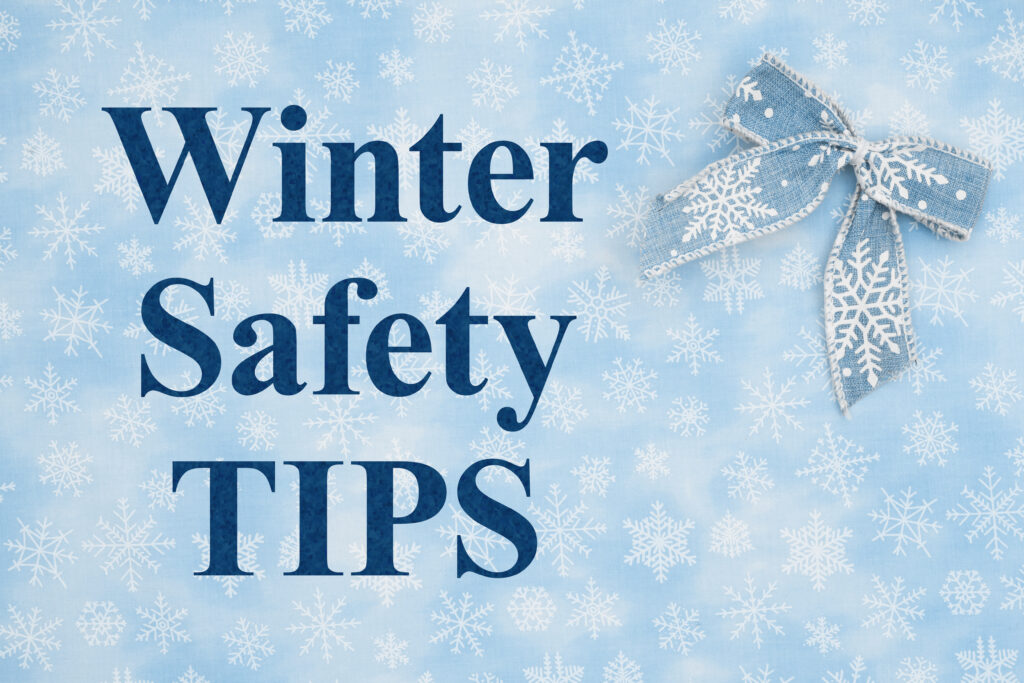
Between snowstorms, deep freezes, and icy conditions, winter can be a stressful time for business owners and homeowners. When you stay prepared with winter safety tips in mind, you’ll stay warm and save on energy costs.
Clear Vents
Did you know that snow and ice can damage gas meters and pipes? Carefully clear any accumulation of snow or ice from the outside vents of your appliances, which allows the necessary airflow for appliances to operate safely. Blocked vents can lead to a dangerous build-up of carbon monoxide inside your home or business.
Make sure to provide a path for UGI personnel who may require access by clearing the snow from the area around your natural gas meter and other facilities.
Keep snow blowers, snowplows, and other powered equipment, which can damage natural gas facilities, away from the gas meter.
Be Prepared for a Power Outage
Don’t let a power outage leave you in the cold. In the event of an outage, never use a generator inside your home, basement, or garage, or less than 20 feet from any window, door, or vent.
During outages, keep these safety tips in mind.
- Never touch a downed power line. Touching a power line or object it is touching can result in serious injury or death.
- Turn off all lights and faucets and unplug appliances. Once your power is restored, make sure your appliances are operating properly, then turn them back on.
- Never use a gas-powered range or oven for heating purposes.
- Use flashlights instead of candles to prevent the risk of fire. Keep a supply of batteries handy.
- To report power outages or downed power lines, call UGI at 800-276-2722.
You can also visit UGI’s outage center for preparedness tips.
Insulate Your Home
Check for drafts in windows, doors, and attics. Proper insulation keeps your home warm and reduces the need for excessive heating.
Maintain Your Heating System
Regular maintenance ensures your heating system works efficiently. Remember to replace filters regularly.
Conserve Water
Insulate water pipes to prevent freezing and bursting. Try to limit hot water usage to conserve energy.
Conserve Water
Place space heaters on a level, hard surface and keep flammable materials such as paper, clothing, bedding, curtains, or rugs at least three feet away. Remember to turn off your space heater before leaving the room or going to bed.
Keep in mind that secondary heating sources, such as space heaters, can increase the chance of carbon monoxide poisoning.
Prevent Carbon Monoxide Buildup
Carbon monoxide (CO) is an odorless, colorless, toxic gas produced by incomplete burning of fuels. CO can be caused by malfunctioning heating appliances as well as damaged or blocked vents and chimneys. CO poisoning is serious and can be fatal. Symptoms of CO poisoning include flu-like symptoms such as headache, nausea, dizziness, and fatigue. If you think you might be experiencing symptoms of CO poisoning, immediately seek fresh air and prompt medical attention.
There are several simple steps you can take to prevent a buildup of CO inside your home or business this winter heating season.
- Make sure your smoke and CO detectors are working and located appropriately.
- Have a professional check your furnace, water heater, and other internal combustion appliances to ensure they are operating safely.
- Change or clean your furnace filters regularly.
- Check your chimney or flue for damage or corrosion.
- Check that combustion air vents are unobstructed.
With these tips, you can prepare your home and business for a warm and comfortable winter while keeping your energy bills in mind.